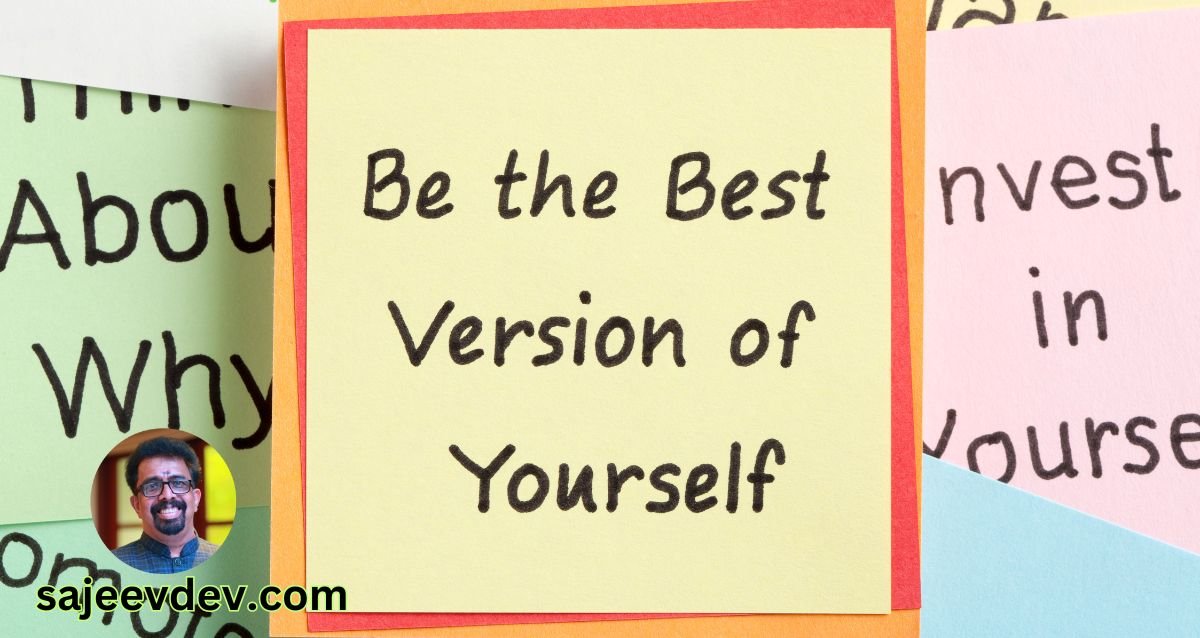The Essence of Finding Yourself
The journey of self-discovery often appears to be a solitary endeavor, one that involves introspection, reflection, and personal growth. However, an often-overlooked path to understanding oneself lies in the act of serving others. The concept that the best way to find yourself is to lose yourself in the service of others underscores a profound truth: by extending our efforts and compassion outward, we inadvertently cultivate a deeper sense of self.
This principle is rooted in altruism—a selfless concern for the well-being of others. When we immerse ourselves in acts of service, we move beyond the confines of our individual concerns. The process of empathetic engagement allows us to transcend our narrow perspectives, connecting us to a broader human experience. Through these connections, we not only aid those around us but also garner insights into our values, strengths, and purposes.
Serving others does not merely enrich the lives of the recipients; it also enhances our emotional and psychological well-being. Engaging in selfless acts fosters resilience, compassion, and empathy, qualities that are integral to personal growth. As we dedicate time and effort to support others, we often uncover hidden talents and passions, prompting a reevaluation of our life choices and goals. The fulfillment derived from altruistic actions can drive a more profound and authentic sense of self-awareness.
In this blog post, we delve deeper into the symbiotic relationship between self-discovery and service to others. Each subsequent section will explore various dimensions of this theme, illustrating how volunteering, community involvement, and everyday acts of kindness can lead to a more profound understanding of oneself. We invite you to join us on this exploration, uncovering how acts of service can be an extraordinary journey towards finding your true self.
Philosophical Grounding: Historical and Cultural Perspectives
The idea that “the best way to find yourself is to lose yourself in the service of others” is deeply rooted in various philosophical and cultural traditions across history. This principle is often echoed in the teachings of influential thinkers and leaders, such as Mahatma Gandhi and Mother Teresa, who exemplified selflessness and altruism through their lives. Gandhi, for instance, famously said, “The best way to find yourself is to lose yourself in the service of others,” highlighting the transformative impact of dedicating oneself to the well-being of others. His philosophy of “Sarvodaya,” or the welfare of all, was founded on the belief that true self-discovery and fulfillment come from contributing positively to the lives of others.
Mother Teresa, another prominent figure, devoted her life to serving the poorest and most vulnerable populations. Her work emphasized the notion that profound joy and a sense of purpose are found in compassionate service. She believed that in the act of offering help to those in need, individuals discover the essence of their humanity and connectedness to others. This sentiment resonates with the concept of “Seva,” a principle found in many Eastern traditions, advocating selfless service as a means to spiritual growth and enlightenment.
Furthermore, tribal and indigenous communities around the globe have long upheld the value of community service and collective well-being. In these cultures, the individual’s identity and sense of self are often intricately linked to their role within the community. The philosophy of Ubuntu, commonly practiced in many African cultures, encapsulates this idea with its emphasis on interconnectedness and the belief that “I am because we are.” This principle suggests that personal identity and fulfillment are inseparable from the collective health and harmony of the community.
These perspectives, ranging from Gandhi’s and Mother Teresa’s profound teachings to the communal philosophies of tribal societies, collectively underscore the transformative power of service. By immersing oneself in the act of helping others, an individual can achieve a deeper understanding of their own purpose and place in the world.
Psychological Benefits: How Serving Others Enhances Well-Being
Engaging in the service of others has profound psychological benefits that contribute to overall well-being. Psychological studies have shown a significant correlation between acts of service, altruism, and improved mental health. By focusing on helping others, individuals often experience a sense of empathy that fosters deeper emotional connections and a broader sense of community. This interconnectedness can lead to increased personal happiness and fulfillment.
One of the key psychological benefits of serving others is stress reduction. Research published in various psychology journals suggests that altruistic behaviors can lower levels of stress and anxiety. When individuals engage in selfless acts, such as volunteering or helping a neighbor, the production of the stress hormone cortisol decreases. This, in turn, contributes to a calmer, more relaxed state of mind. By diverting attention from personal worries to the needs of others, individuals find a reprieve from their own stressors.
In addition to stress reduction, serving others enhances life satisfaction. Positive psychology emphasizes that acts of kindness can provide a sense of accomplishment and personal growth. For instance, when people take part in community service or provide mentorship, they often report a heightened sense of purpose and self-worth. This sense of purpose is crucial for maintaining long-term life satisfaction, as it aligns daily actions with core values and beliefs.
Moreover, the act of serving others promotes empathy, which is a foundational element of psychological well-being. Empathy allows individuals to understand and share the feelings of others, fostering an environment of mutual support and cooperation. This emotional resonance can result in more meaningful relationships and a stronger support network, which is essential for mental health and resilience.
Overall, the psychological advantages of serving others are multifaceted and significant. Through reduced stress, increased life satisfaction, and an enhanced sense of purpose, individuals can achieve a richer, more fulfilling life experience by dedicating themselves to the service of others.
Practicing Altruism: Practical Steps to Serve Others
Altruism, at its core, is the selfless concern for the well-being of others. Integrating acts of service into one’s daily life can be both fulfilling and transformative. To serve others effectively, one need not make grand gestures; even small, consistent acts of kindness can make a significant impact. Here are some practical steps you can take to practice altruism and incorporate service into your everyday life.
Start with small, daily acts of kindness. These could range from helping a neighbor with their groceries, offering a seat to someone on public transport, or simply sharing a smile with a stranger. Small gestures like sending an encouraging message to a friend or buying a meal for someone in need can brighten their day and establish a positive habit of giving.
Moving towards more structured commitments, volunteering for community service is an impactful way to contribute. Many organizations are in constant need of volunteers to support their activities. Whether it is helping at a local food bank, participating in neighborhood clean-up drives, or assisting at animal shelters, these acts of service offer valuable support to the community and provide a sense of purpose and connection.
For those looking to make an even greater impact, consider mentoring. Sharing your knowledge and experience can significantly influence someone’s life. Whether through formal mentoring programs or informal arrangements, guiding someone through their educational, professional, or personal development can create lasting change and help build stronger, more resilient communities.
Additionally, support social causes that resonate with you. This can involve participation in advocacy, raising awareness about important issues, or contributing to non-profits and charities. Engaging in social causes allows you to address broader societal challenges and contribute to systemic change, amplifying the impact of your service efforts.
Incorporating altruism into your life does not require monumental efforts; rather, it is about consistently choosing to act with kindness, empathy, and a genuine desire to help others. By taking these steps, you not only contribute positively to society but also find a deeper sense of fulfillment within yourself. Remember, the best way to find yourself is indeed to lose yourself in the service of others.
Overcoming Barriers: Addressing Common Concerns and Challenges
Engaging in service to others often presents several challenges. Many individuals encounter obstacles such as time constraints, fears of inadequacy, and potential burnout. Understanding and addressing these barriers is crucial for sustaining meaningful service efforts.
Time constraints are a significant concern for many who wish to serve. In today’s fast-paced world, finding time to volunteer or contribute to community projects can seem daunting. One effective solution is to incorporate service into daily routines. For instance, simple acts like helping a neighbor or supporting a local cause during lunch breaks can make a substantial impact without demanding extensive time commitments. Moreover, prioritizing and scheduling specific time slots for service can help balance personal and professional responsibilities.
Another common barrier is the fear of inadequacy. Many individuals feel they lack the necessary skills or knowledge to contribute effectively. Overcoming this fear involves recognizing that everyone has something valuable to offer. Embracing a growth mindset and seeking opportunities for learning can enhance one’s confidence in their ability to contribute. Participating in training programs and workshops can equip individuals with relevant skills, ensuring they feel more prepared and capable.
Burnout is another critical concern, especially for those deeply committed to serving others. To prevent burnout, it is essential to maintain a healthy balance between service activities and personal life. Setting realistic goals and understanding one’s limits can help prevent overcommitment. Practicing self-care and seeking support from fellow volunteers and community members can provide the necessary emotional and mental rejuvenation.
There are numerous examples of individuals who have successfully balanced service with their personal lives. Consider Sanjay, a corporate executive who dedicates weekends to mentoring youth in his community. By clearly defining his service hours, Sanjay maintains his professional duties without feeling overwhelmed. Similarly, Emily, a full-time nurse, integrates small acts of kindness into her daily routine, making service an intrinsic part of her life without adding extra strain.
Stories of Transformation: Real-Life Accounts
Imagine a young professional, Jane, who was disillusioned by the corporate world. Jane decided to take a sabbatical and volunteer at a community center for underprivileged children. Initially, her goal was to escape her day-to-day routine, but as days turned into weeks, she found herself deeply connected to the children. She discovered an untapped reservoir of empathy and leadership skills. This experience radically altered her perspective on life, eventually leading her to start her own non-profit organization aimed at children’s education. Jane’s story is a testament to how service to others can be a path to finding one’s true purpose.
In another transformative tale, we meet Alex, a former military officer. Struggling with the transition to civilian life, Alex joined a veteran support group that focused on community service activities. Through helping to rebuild homes in disaster-stricken areas, Alex not only rebuilt his sense of self-worth but also forged deep, meaningful connections with fellow veterans. These acts of service provided a therapeutic outlet that helped him regain his sense of identity and belonging. Alex’s journey showcases the profound healing powers of communal service.
Then there’s Maria, a retired nurse who felt a void in her life after decades of dedicated service in healthcare. Maria decided to volunteer her medical expertise in remote, underserved regions. The experience was more fulfilling than she ever imagined. Not only did Maria contribute to improving healthcare access, but she also experienced an enriching cultural exchange that broadened her worldview. Her time spent in service rejuvenated her spirit and gave her retirement a new sense of direction and purpose.
These stories underscore a universal truth: when individuals immerse themselves in the service of others, they often find a deeper sense of meaning and fulfillment in their own lives. The transformative power of losing oneself in service lies in the reciprocal nature of giving and receiving, offering an enriching pathway to self-discovery and personal growth.
Creating a Service-Oriented Mindset: Cultivating Lifelong Altruism
Developing a service-oriented mindset is a transformative process that begins with continuous self-reflection. Regularly evaluating one’s values, priorities, and actions can reveal areas where one can contribute more effectively to the community. This introspection not only highlights personal growth but also underscores the importance of empathy and understanding other’s needs. By deliberate reflection, individuals can cultivate a deeper connection with their altruistic goals and align their daily activities accordingly.
Setting personal goals for service is another critical step in fostering lifelong altruism. Clearly defined objectives provide direction and purpose, making it easier to integrate acts of service into daily routines. These goals should be attainable yet challenging, encouraging individuals to stretch their limits while making meaningful contributions. By documenting and reviewing these goals periodically, one can track progress and stay motivated. Whether it’s volunteering a certain number of hours per week or initiating community projects, having concrete targets keeps the spirit of service dynamic and purposeful.
Equally important is building a network of supportive communities. Engaging with like-minded individuals or groups creates a sense of camaraderie and shared mission, which can be immensely motivating. Such communities offer encouragement, resources, and opportunities to serve, enhancing one’s ability to make a sustained impact. Whether through formal organizations or informal groups, these networks play a pivotal role in maintaining motivation and fostering a culture of service.
Maintaining the motivation for service requires regular inspiration and self-care. Seeking out stories of impact, celebrating small victories, and acknowledging the positive changes resulting from one’s efforts can rejuvenate one’s commitment. Integrating service into one’s life consistently involves finding balance, ensuring that the act of giving does not lead to burnout. By prioritizing self-care and staying inspired, individuals can continue to serve effectively and enthusiastically over the long term.
Incorporating these practices into one’s life nurtures a service-oriented mindset and fosters lifelong altruism. Through continuous reflection, goal setting, and community support, the enduring benefits of service become an integral part of one’s identity, thereby enriching both personal and communal life.
Service as a Path to Self-Discovery
The journey of self-discovery is uniquely profound and inherently personal. Throughout the article, we have explored the concept that true understanding of oneself can be achieved through acts of service to others. This idea, deeply rooted in various philosophical and spiritual traditions, posits that by losing ourselves in the service of others, we find deeper meaning and purpose in our own lives.
By engaging in altruistic activities, whether through volunteering, community work, or simply extending kindness in everyday interactions, we transcend our own egos and connect with the larger fabric of humanity. These acts not only benefit those we assist but also catalyze a transformative process within ourselves. Through service, we acquire empathy, resilience, and a renewed perspective on the interconnectedness of life.
The benefits of serving others extend beyond personal growth and include a sense of fulfillment and happiness. Numerous studies have shown that those who invest time in helping others experience lower levels of stress and increased feelings of gratitude and satisfaction.
As we conclude this reflection, it is essential to recognize that the path to self-discovery through service is an ongoing journey. Each act of kindness, no matter how small, contributes to a larger tapestry of societal betterment and personal enlightenment. Therefore, consider how you can integrate acts of service into your daily routine. Reflect on your unique talents and passions, and identify ways to leverage them for the common good.
We encourage you to take the first step today. Engage with your community, offer your time to those in need, and observe the changes within yourself. In doing so, you may find that the best way to discover who you truly are is by dedicating yourself to the service of others.









